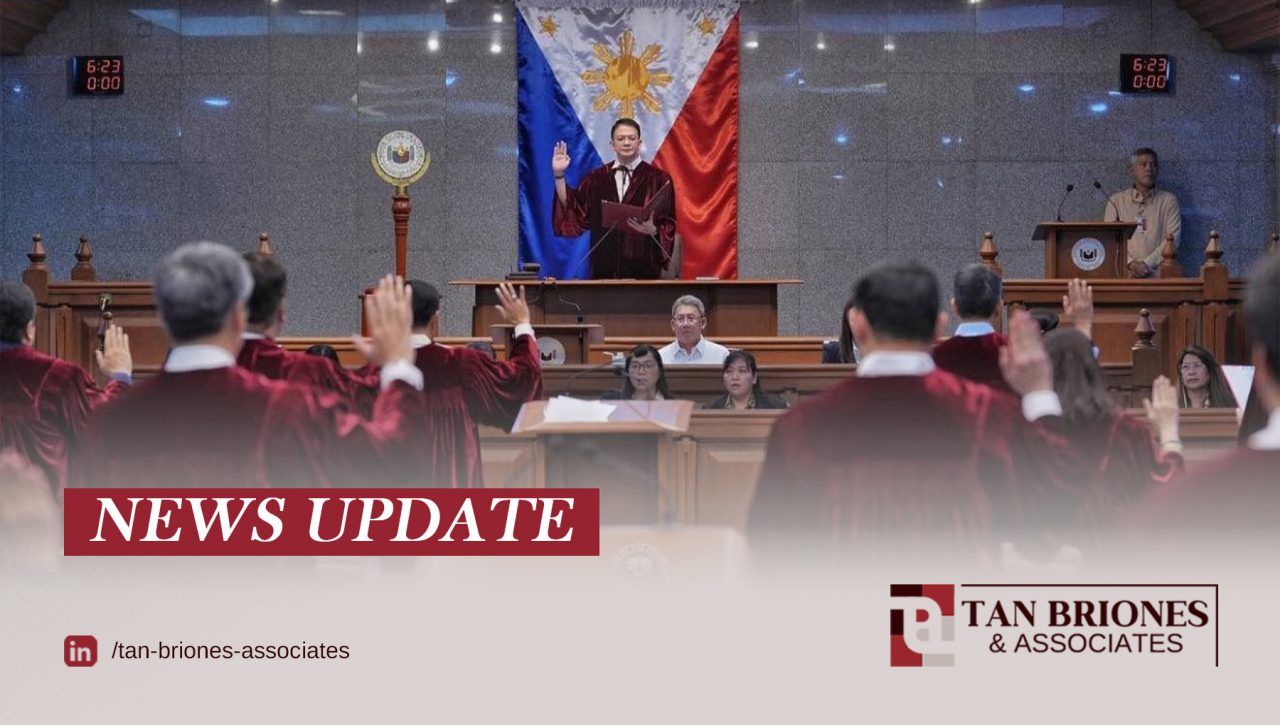
While the impeachment court has ordered the return of the Articles of Impeachment to the House of Representatives, it has also initiated the issuing of summons to Vice President Sara Duterte.
The Senate formally convened as an impeachment court on June 10, following the oath-taking of the senators before Senate President Francis Escudero, who had taken his oath as presiding officer the day prior.
Voting 18-5, the impeachment court ordered that the Articles of Impeachment be returned to the House of Representatives, without dismissal, until it certifies no violation of Article XI, Section 3(5) of the Constitution occurred regarding the first three complaints.
Article XI, Section 3(5) of the Constitution pertains to the limitation that no impeachment proceedings shall be initiated against the same official more than once within a period of one year.
Additionally, the impeachment court requires that the 20th Congress affirms its willingness and readiness to pursue the case against the vice president.
As the presiding officer of the impeachment court explained, the court’s action does not cause any delay and could even expedite the process, as the respondent’s affidavit and the prosecution’s reply are expected to be ready by then following the issuance of the writ of summons.
He added, the House has more time to act and prepare while the Senate is in recess, no trial is being held, and the 20th Congress has not yet convened.
It should be noted that the 20th Congress will only convene on July 28, alongside the State of the Nation Address—an arrangement which, according to critics and experts, reflects the 19th Congress Senate’s intention to pass the burden to the next Congress.
In a press briefing on June 11, Escudero addressed concerns, stressing that jurisdiction of the court on the impeachment is not lost despite sending it back to the lower house.
“No one said that jurisdiction was lost — please read Alan’s motion… It says there without dismissing, without terminating. So, the impeachment court retains its jurisdiction, to my mind, that’s why we issued summons,” the senate president said.
“How can we issue summons if we do not have jurisdiction? And remember, the order issuing came after the vote. I think this is quite clear, even to young lawyers, or even young law students,” he furthered.
For its part, the House prosecution panel expressed its intention to temporarily defer compliance with the impeachment court’s order and to file a motion for clarification regarding the said order.
“The prosecution panel considers the impeachment court’s order last night unclear, so we resolve to seek the clarification of the impeachment court,” Cong. Gerville Luistro, one of the prosecutors, stated.
However, Luistro clarified that they are not disobeying the order but merely “deferring the receipt until we are clarified on the actions taken by the Senate.”
In response to the order of the impeachment court, the House prosecution panel maintained that they fully and strictly complied with the constitutional requirements in filing the impeachment complaint, asserting that they did not violate the one-year prohibition rule.
Regarding the court’s second order on whether the House would pursue the same complaint in the 20th Congress, the panel found the directive unclear and difficult to comply with.
“It is impossible to be complied with because first of all, 20th Congress doesn’t exist yet. Tayo po ay nasa ikalabing-siyam na Kongreso pa lamang. Mag-aadjourn pa po and we will be looking forward na mag-convene naman ang [ika-dalawampung] Kongreso ng Pilipinas,” she said.
Of the five senator-judges who voted against the motion were Senate Minority Leader Koko Pimentel, Deputy Minority Leader Risa Hontiveros, and Senators Sherwin Gatchalian, Grace Poe, and Nancy Binay.
Sen. Bato Dela Rosa, after delivering a privilege speech, originally moved for the dismissal of the impeachment complaint, but this was amended by Senator Alan Cayetano, whose initial wording was ‘to remand’ before it was ultimately revised and adopted with the phrase ‘to return’.
The adopted motion read as follows: “That the Articles of Impeachment be returned to the House of Representatives, without dismissing or terminating the case, until such time that:
1. The House of Representatives certify to the non-violation of Art. XI, Section 3, paragraph 5 of the Constitution, including the circumstances on the filing of the first three (3) impeachment complaints; and
2. The House of Representatives of the 20th Congress communicate to the Senate that it is willing and ready to pursue the impeachment complaint against the Vice-President.”
The impeachment court was originally set to convene on June 11, following an earlier schedule of June 2, but was moved up to June 10 when the senators decided to take their oaths and constitute themselves as an impeachment court, since they could not act on Sen. Bato’s motion while sitting in legislative session.
As agreed upon by the member-judges, the session of the impeachment court was adjourned on June 10 and shall resume at a date and time to be set by the presiding officer.
Follow Tan Briones & Associates on LinkedIn for more legal updates and law-related articles.







